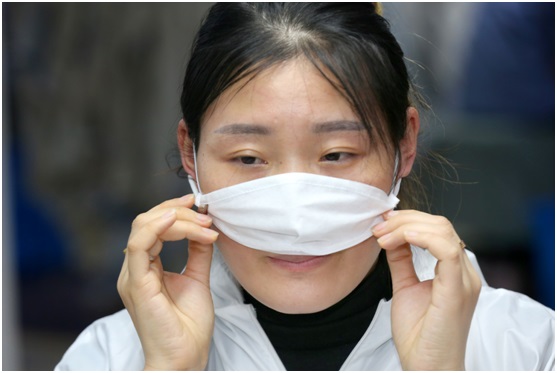By Jiang Jianke, People’s Daily
China became the top filer of international patents in 2019, and accelerated the progress to build itself into an intellectual property (IP) powerhouse, said Shen Changyu, head of China’s National Intellectual Property Administration (NIPA).
Shen made the remarks at a press conference briefing China’s IP development held by the State Council Information Office Thursday.
China further improved the quality and efficiency of patent and trademark examination. The processing time for high-value patents examination was reduced to 17.3 months, while that for trademark registrations was shortened to 4.5 months, both going beyond the annual targets set by the State Council. A total of 7.93 billion yuan ($1.12 billion) in patent and trademark-related expenses was reduced and exempted last year.
The country’s IP protection was comprehensively enhanced last year, with a series of campaigns launched to protect IP rights. A total of 32,000 trademark violation cases and 7,000 patent violation cases were dealt with, involving 510 million yuan. In addition, 39,000 cases of administrative adjudication of patent infringement disputes were handled, while 10,000 cases of unfair competition involving 3.16 billion yuan were investigated.
Furthermore, China’s IP quality was also on steady improvement. The number of valid invention patents held on the Chinese mainland reached 1.86 million, with 13.3 invention patents per 10,000 people, attaining the targets set in the country’s 13th Five-Year Plan (2016-2020) ahead of schedule. The number of valid trademarks registered by Chinese mainland entities hit 25.22 million, with every 4.9 market entities owning a registered trademark on average.
China was ranked 14th in a global innovation ranking in 2019, moving up three spots from the previous year and ranking first among world’s mid-income economies, according to reports and data released by the World Intellectual Property Organization (WIPO).
Last year, the country was the largest applicant for international patent applications submitted through the Patent Cooperation Treaty, and the third largest for trademark registration under the Madrid System, with 59,000 and 6,339 applications filed, respectively.
Meanwhile, China significantly improved the efficiency of IP utilization. According to statistics, the added value of the China’s patent-intensive industries topped 10.7 trillion yuan in 2018, accounting for 11.6 percent of the country’s GDP and rendering strong support to its high-quality economic development.
Besides, the added value of China’s copyright industry reached 6.6 trillion yuan in 2018, accounting for 7.37 percent of the country’s GDP.
He Zhimin, deputy head of the NIPA introduced that a guidance had been issued by the organization to further delegate power, improve regulation and upgrade services in IP protection, as well as better the country’s business environment, covering 78 measures in 14 aspects.
These measures shortened the average examination period for trademarks registration to 4.5 months, close to the fastest worldwide under the same system, and the reviewing period for modification and transfer of trademarks as well as international trademark registration under the Madrid System was also reduced.
Besides, the processing time for re-examination of refused registrations was cut from 12 statutory months to seven, while that for complicated cases to 10 months.
The guidance also facilitated trademark-related businesses. Applicants can apply for registration, amendment, and transfer of trademarks, as well as registration of trademarks under the Madrid System via both online and offline channels. Last year, 94.5 percent of the applications were filed online.
China has 212 brick-and-mortar offices that accept trademark application, and trademark pledge financing can be applied at 103 of them. They helped enterprises raise about 41.1 billion yuan last year, effectively alleviating the difficulties faced by enterprises in accessing affordable financing.
A patent on “nose mask” developed for medical staff is applied by Luolai Lifestyle Technology Co., Ltd. based in Nantong, east China’s Jiangsu province in March. Photo by Xu Congjun, People’s Daily Online












Leave a Comment